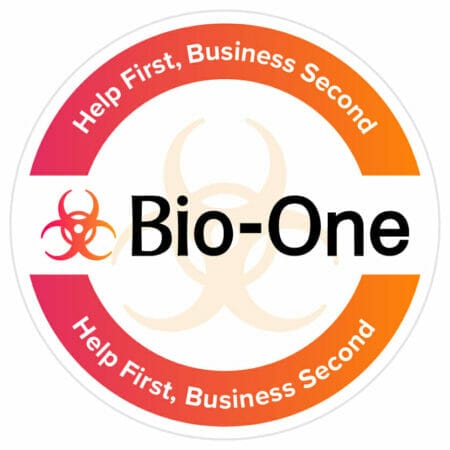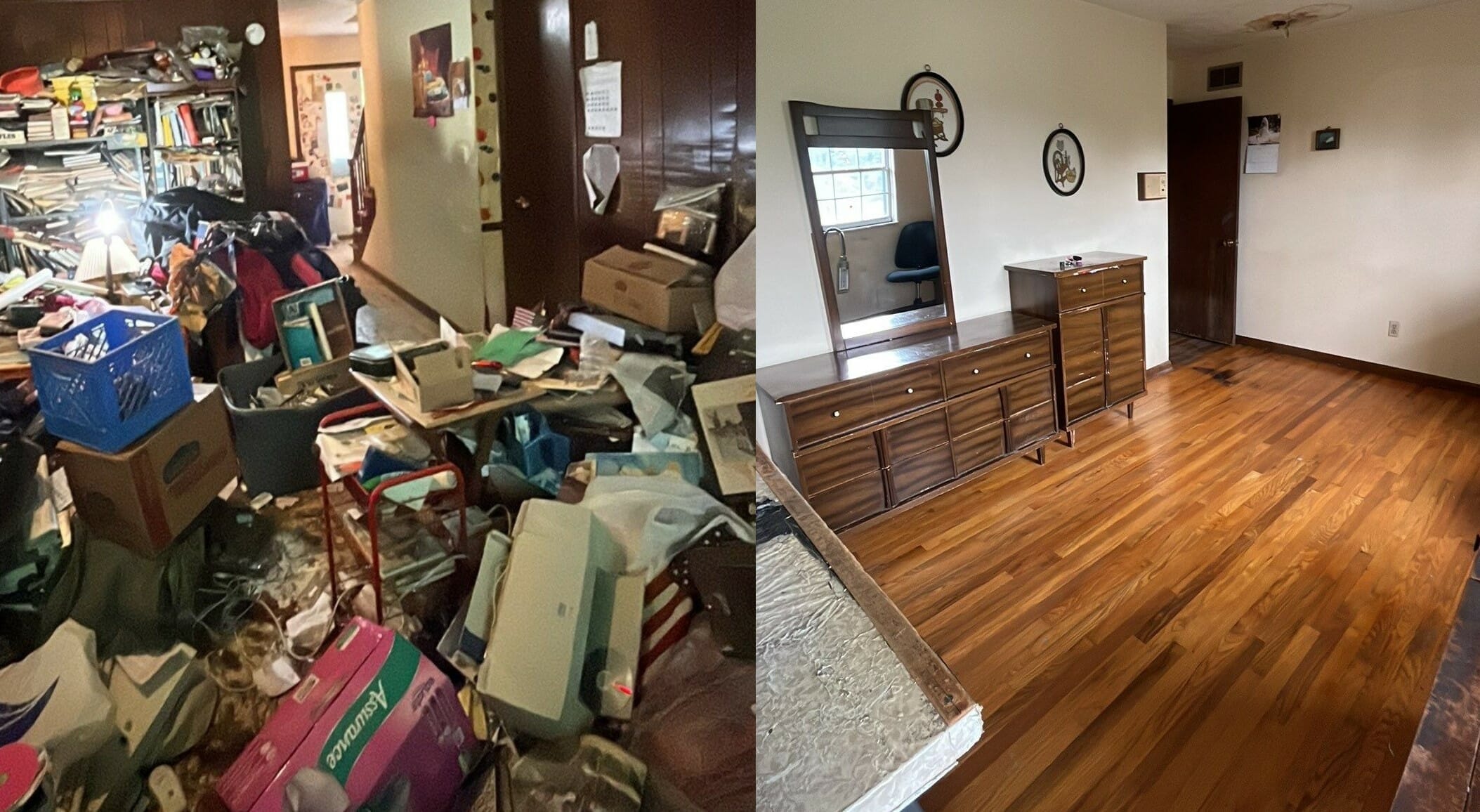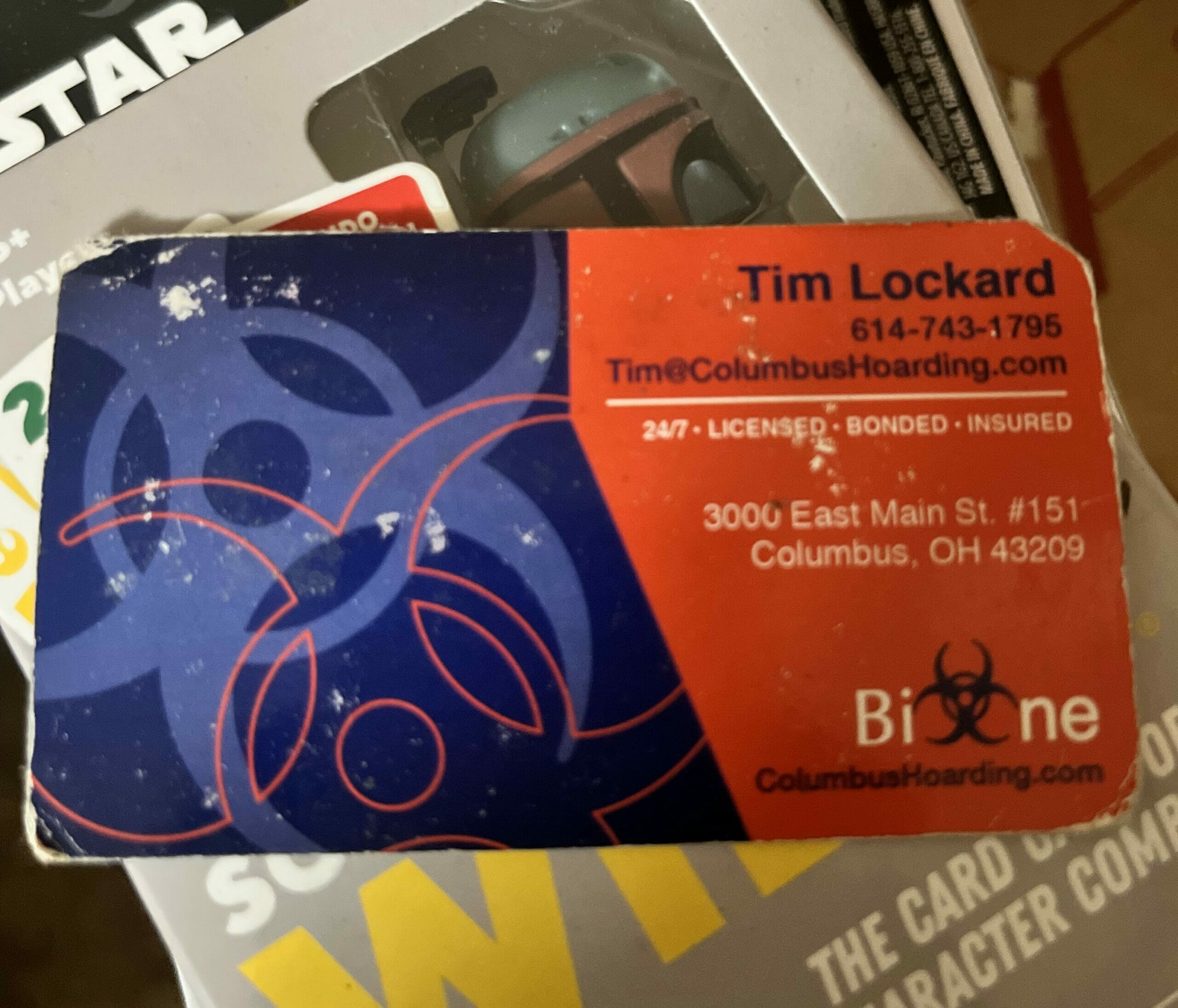
“Have patience. All things are difficult before they become easy.”
~Saadi
The Power of Patience

by Tim Lockard, Owner Bio-One Columbus
It was a Monday in June, and we were half a day into a week-long project. The home in which we were working was moving its way through the docket of the Franklin County Environmental Courts for several code violations involving unsafe conditions due to excessive clutter, non-functioning mechanicals and general unsanitary living conditions.
It’s not uncommon for us to be working in a home that Code Enforcement has “Red Tagged”, a status in which the owner(s) may not legally occupy the residence until safety violations have been remedied. In this particular home, we were tasked with removing what ended up being approximately 17 tons of non-salvageable clothing, household items, furniture, appliances and trash.
On that particular Monday in June, Becky, one of my Project Managers, called me over to show me something she’d found while sorting for family photographs and other irreplaceable items in a waist-deep pile of mostly trash in the living room. It was one of my business cards.

Having gone through several styles of cards over the years, I recognized it as being at least five years old. Someone in the client’s life had given her my card, and she’d kept it for all those years without calling until just recently. It makes me wonder how her life might have been impacted had she called sooner.
There are many reasons a home can reach this degree of dysfunction and why it takes people a long period of time to reach out for help. Compulsive Hoarding Disorder (also known as Hoarding Disorder) is a mental disorder characterized by accumulation of possessions due to excessive acquisition of or difficulty discarding them, regardless of their actual value (APA). This leads to significant distress or impairment in personal, family, social, educational, occupational or other important areas of functioning.
While this disorder is often a root cause of the clutter and decline in function, we find that most of our clients living in hoarding-like conditions don’t have a formal diagnosis. Most would describe themselves as struggling with periodic bouts of depression and living with some degree of physical disability (often age-related). They may hide their condition from family, friends, doctors and others. The shame, embarrassment, fear, and overwhelming anxiety around compulsive hoarding and possible consequences can paralyze the person's decision-making capabilities.
It reminded me of another client who had my card for eleven months and had even set a daily reminder in her phone to call me. Eleven months was how long it took her to work up the courage to call. When she finally called, I told her that she’d called the right place and that we could help. I remember her sobbing through the phone with relief that she had finally made the call and was met with compassion and concern, rather than shame.
These are our clients, and regardless of the reasons that they find themselves living in these conditions, we help to restore the functionality and safety in their homes. We do this without judgment and with respect for their right to dignity and self-determination. I know we’ve made an indelible, positive impact on those lives and many others. It’s why we do what we do.
How To Help

If someone you know is experiencing emotional distress or in an unhealthy living situation, but is struggling to ask for help, there are many ways to help them.
Here are a couple of tips, whether you are a friend, family member or an acquaintance:
- Just start the conversation: You don't have to be an expert or know all the answers but letting them know you are there for them and want to help is a good start.
- Show patience and caring: A non-judgmental, gentle approach is best and actively listen to their concerns.
- Encourage them to seek help from a professional: Remind them that seeking help is a sign of strength and self-care.
- Persistence is key: Consistently showing up with kindness and compassion can build the groundwork of trust that facilitates the next step in asking for help.
Did You Know?

- People are often afraid to seek help for fear of appearing weak or incompetent.
- Individuals also fear surrendering control if they ask for help.
- Research shows that people believe they will be rejected when asking for help, but in reality they will often get help the first or second time they ask.
- Approximately 22.8% of Americans have a diagnosable mental health condition.
- Less than half of those receive mental health treatment.
- Hoarding disorder impacts between 2-6% of the general population.
- Hoarding disorder is treatable and people can succeed in living healthy, functional lives.
Bio-One of Columbus is a leader in crime scene cleanup and biohazard decontamination services in Columbus. Our technicians are highly skilled and have been trained on OSHA's safety standards.
Bio-One of Columbus continues to be the most passionate and caring company in the cleaning services industry.
For more information, visit us at https://bioonecolumbus.com/
Twitter: @BioOneColumbus LinkedIn: Bio-One Columbus Facebook: Bio-One Columbus Instagram: Bio-One Columbus


